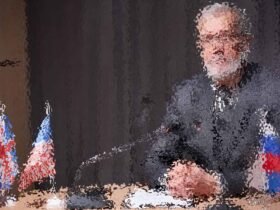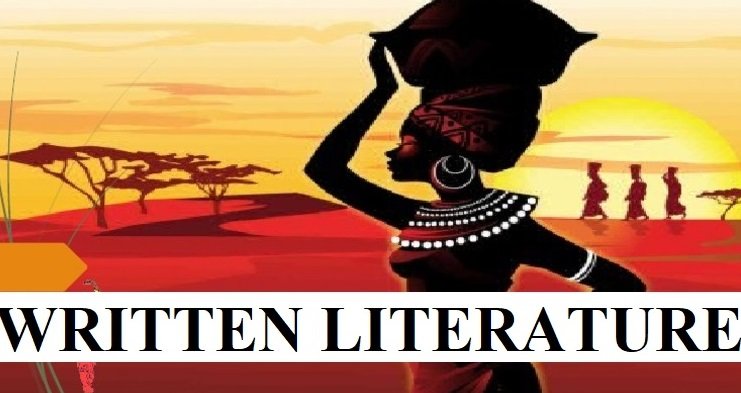THE CONCEPT OF FOREIGN POLICY
Foreign Policy is the system established or formulated by a country in order to maintain its regular political, social and economic interaction with other states in the world. The interaction is made by diplomatic who represents their representative country.
The main task for diplomats or ambassadors is to make sure that social, culture and economic activities of their home countries are globally known and to prepare a tripe for the countries ruler.
THE FOREIGN POLICY IN TANZANIA
Like other countries in the world, Tanzania has formulated the system of foreign policy to maintain regular political, social and economic affairs.
Tanzania foreign implemented and managed by the Ministry of foreign affairs and international relation.
Tanzania foreign policy is a policy of Non Alignment.
PRINCIPLES OF TANZANIA FOREIGN POLICY
1. Promotion of independence of all other African states.
2. Maintenance of its freedom by determining domestic and foreign policy.
3. Promotion of international cooperation and understanding through organization such as UNO, AU, and NAM.
4. Promotion of world peace and order through UNO, AU, and others international organization.
5. Promotion and maintenance of human rights and democracy in the world.
Reasons for Tanzania choosing the policy of Non Alignment
1. To avoid unnecessary international conflicts.
2. To maintain sovereignty on deciding international issues without being forced by bigger states.
3. To choose friends regardless the influence of either of the block i.e. U.S.S.R and U.S.A.
4. To strengthen international cooperation and understanding.
How Tanzania foreign policy is implemented
Tanzania foreign policy is implemented by the Ministry of foreign Affairs and international cooperation through the Embassies or high commissions.
The main task of diplomats or Ambassadors is to make sure that social, cultural and economic activities of their home countries are globally known.
These diplomats or Ambassadors are also responsible in making, prior preparations to facilitate trips of national top leaders like president in their respective countries.
These diplomats include the following;
A diplomat: Is a person who officially represents his/her country in a foreign country. The highest diplomats are known as ambassadors or ambassadresses, high commissioner and consul
An Ambassador/ ambassadress – Is a government official representative sent to represent his/ her country in a non common wealth country to conduct business with that most country on behalf of his/her home country. The office of an ambassador or ambassadress is known as an Embassy.
A high commissioner: Is a government official representative (diplomat) posted to represent his/ her county to common wealth countries, such representatives are known as high commissioners. The offices are termed as high commissioner
A consul: A consul on the other hand is a representative of a town or city to help country men living or visiting there. The consul’s office is called consulate.
Consulates are extension of embassy or high commission to major cities of host country other than capital for specific task of social, economic and cultural ties.
Function of Ambassadors or high Commissioners:
1. To represent Tanzania abroad.
2. To popularize Tanzania’s natural, social and cultural resources.
3. To register and assist Tanzanians who lives abroad.
4. To made preparations for facilitating trips of Tanzanians leader in foreign countries.
How Tanzania the principles of Tanzania foreign policy are implemented
The following ways show how Tanzania implements her foreign policy.
1. Tanzania has established diplomatic relations with different countries and has officials and ambassador in those countries so as to popularize her social, economic and cultural endowment as well as promote co-operation.
2. Tanzania receives diplomatic official from different countries with their offices in Tanzania
3. Tanzania has established relations with international organizations eg. UNO, Commonwealth, Au etc.
4. Tanzania is the member of the UN as it acknowledges the objectives and principle of the UN charter accord for the equality of all states and dignity of man.
5. Tanzania has established regional and economic co-operation such as the EAC and SADC so as to secure genuine and equitable regional economic and infrastructural integration
TYPES OF INTERNATIONAL RELATIONS
Bilateral relation
This is a type of cooperation which involves the agreement between two states E.g. Tanzania and Zambia in running TAZARA. In this co-operation there is no specific or common ideology governing the undertaking of the member countries
Countries involve in this cooperation can agree to cooperate in various areas such as economic, cultural, scientific and technological researches, political, security and defense.
Multilateral relation
This is the types of Cooperation which involve group of many countries like regional inter grouping such as S.A.D.C, E.A.C, and COMESA, NAM, AU, etc.
Multilateral cooperation is sometimes known as regional multilateral integration.
Importance of multilateral cooperation
1. The country gets aid and loans from friend nations with minimum nationalities or restrictions.
2. Promotion of both internal and external peace. The country is assured of security assistance from friendly nations and Tanzania participates in solving problems of other countries
3. Improvement of transport and communication. Tanzania is able to improve transport systems across the borders due to friendly relations with the neighboring countries. For example, though Tanzania Mozambique Friendship Association (TAMOFA). Tanzania has been able to construct Mtwara Bridge in association with Mozambique.
4. Economic development has also been achieved through friendly relations with other countries. Investors from friendly states come and invest in Tanzania and thus contribute to the economic development of Tanzania
FOREIGN POLICY
As it has been noted above, that International affair entails International shared issues economically, socially, politically and technologically as well. Thus, these issues should be planned (designed), discussed and implemented by all national in the world. But what guides a country in implementing of foreign affairs is what “called foreign policy”.
Meaning of foreign policy
The foreign policy of the country is a system that maintains regular political social and economic contact with other states (Masatu, 2003:68). The contact and interactions is made by diplomacies that represent their respective countries. These include Ambassadors, Consuls and High commissioners. This makes sure that social, cultural, political and economic activity of their home countries are globally known by other nations. Also they do engage in diplomatic affairs.
The principles of Tanzania’s Foreign Policy
Tanzania foreign policy has the following principles:
1. Promotion and maintaining of human rights
2. Promotion of national Independence and security
3. Upholding or maintenance of her freedom by determining her domestic and foreign policies
4. Promotion of international cooperation and consultation through Organizations Africa Union (OAU) Non-Aligned movement (NAM) and the Commonwealth.
5. Promotion of world peace and order through UNO, AU and other International Organizations
6. Upholding the right of all nations and people to self determination.
Tanzanian’s foreign policy as a guide or system which leads a nation in implementation of socio, economic and political issues with other nations is addressed and implemented by the ministry of International Cooperation and Foreign affairs. The minister for the ministry from 2015 to date has been Paramagamba Kabudi (MP). The ministry has got various functions and importance in implementation of its mission and vision.
Importance of Tanzania’s Foreign policy:
Tanzania foreign policy has got much significance to the nations and individuals of the whole world.
Some importance includes:-
1. Through sending diplomats i.e. Ambassadors, Consuls and the High Commissions who represent Tanzania to other countries
2. Popularizing Tanzania’s social, cultural and economic activities in other countries.
3. Tanzania foreign policy through diplomats engages in different conflict resolutions and arbitration all over the world.
4. Promoting Tanzania relations with International organization such as UN and OAU.
5. Making preparations and facilitating trips for Tanzanian leaders in given foreign countries and arranging the visits of cultural, foreign business and tourists group in other countries.
6. Also the foreign policy department assists the people from other Nations and Tanzania civilians to secure visa, scholarship and passports.
BILATERAL COOPERATION
Bilateral cooperation is friendly relationship between two countries. In Bilateral co-operation, there is no specific or common ideology governing the relation.
A type of relation on which two nations only agree on certain matter like Tanzania and China, Tanzania and Cuba, Sweden and UK and so forth. In this relationship the countries agree on some matters either investments, transfer of science and technology, provision of scholarship and so forth.
Achievements of Tanzania’s bilateral relation with other countries
Tanzania as other countries of the world have had not aligned with either Capitalist or a Socialist bloc. Thus, it has been getting friends from many countries in historical perspectives .
With this fact; many achievements have been obtained as follows:
1. Through bilateral cooperation i.e. relationship between Tanzania and Cuba, has assisted Tanzania to send a good number of science students majoring in medicine, pharmacy Surgery and others who studies in some Universities of Cuba.
2. Assistance has been flowing from countries like China to Tanzania; these include technological aid, Capital and training of human capital.
3. Also Tanzania had been able to share the common ideology of socialism with countries like USSR (Russia), Cuba and China, this has enriched Tanzania philosophy of socialism andself-reliance.
4. Beside of uplifting the philosophy of socialism and self – reliance, also Tanzania has achieved Foreign Direct Investments (FDI) in the available opportunities, for example, United States of America has invested in mining sector, Chinese have invested in industries and Arabs world have invested in Tourism sector.
5. The Scandinavian counties have been assisting Tanzania both economically, socially and politically as well. These countries include Norway, Sweden and Denmark. DANIDA an organization by Swedish has been boosting education sector in Tanzania.
6. Diplomatic relationship with other nations has been uplifted, profoundly; Tanzania has made sure that diplomatic relationship with friend nations has had improved at great extent. This has been realized by presence of lambassadors and other diplomats from China, Cuba, USA, and Russia.
DISADVANTAGES OF TANZANIA’S BILATERAL RELATION WITH OTHER NATIONS
Inevitably Tanzania’s bilateral cooperation has got disadvantages even though some benefits and achievements are in place. This is due to the fact that the circumstances and conditions prevailing between one country (Tanzania) and other country differ because of cultural different, technological and development and ideology.
The following are some disadvantages of Tanzania bilateral cooperation/ relations with other nations:-
1. Induce perpetuation of neo-colonialism, because of different levels of development or economy, Tanzania socio-economic and political situation becomes dictated by other nation.
2. The relationship which is into existences can profoundly lead to trade imbalance, because of different in economic development leads industrialized country to import more in Tanzania compared to what Tanzania export in such countries, for example, compare the relationship existing between Tanzania, and Cuba, UAE, USA, China, Sweden and others on International trade
3. Also outdated technology and products can easily flow into Tanzania. The bilateral cooperation induce also the provision of assistance especially technological assistance which sometime is outdated and unfit for Tanzania situation (difficulty to diffuse, adapt and assimilate), example consider Tanzania – China relationship and technology which is flowing from China, it is sometimes coupled with fake materials, but Tanzania as a country cannot question because China is best friend in historical immemorial.
4. Also bilateral cooperation relationship induce dependency, this due to the fact that the friendship is for seeking assistance i.e. aid, loan and grants , this situation creates ground for Tanzania to be dependent and hence reduce the spirit of hardworking.
5. Also it can possibly enhance the loss of revenue. This is due to the fact that the import duties, tax and tariffs for the goods from friend nations are reduced or eliminated to enhance the relationship. This reduces the collection of revenue for national development.
6. Through cultural sharing, Tanzania is easily to distort its own culture through adopting some values from masters’ culture. Though cultural distortion has been enhanced by globalization policy.
7. Exhaustion of resources in Tanzania is also possible due to the fact that, the countries in relationship possess advanced science and technology which aids them to overexploit our resources, besides; the interests on loanable fund do exert pressure on repaying the money. Also reliefs on Foreign Direct Investments (FDI) compel an expatriation of profit from Tanzania.
Generally even though bilateral relationship between Tanzania and other nations induces benefits in diplomatic relationship, economic and social relationship but is also coupled with problems which are difficult for a country like Tanzania to avoid.
MULTILATERAL COOPERATION
Unlike the bilateral cooperation, which composes relationship between two nations, multilateral cooperation is a kind of cooperation composing many countries. Multilateral cooperation composes many regional co operations such the East Africa Community (EAC), Economic Community of West Africa states (ECOWAS), Southern Africa Development Community (SADC), Common Market for Eastern and Southern Africa (COMESA) and Non Aligned Movement (NAM).
Multi-lateral cooperation involves therefore regional groupings which deal with social, economic and political relationship among countries in the regional.
IMPORTANCE OF MULTILATERAL CO – OPERATIONS
There are many importance of multilateral cooperation as follows:-
1. Multilateral cooperation assist much in ruling out the perpetuation of neo-colonialism, through cooperation the countries normally stand together/ having one say in World matters or any matter dictated by Western Nations.
2. Multilateral cooperation provides a wide chance or forum for Nations to discuss their social, economic and political problems prevailing in the region i.e. SADC, ECOWAS, and EAC just to mention a few.
3. The multilateral cooperation encourages the movement of people, capital and service across the borders which enhance an economic development within the cooperation. This becomes possible if barriers like custom duties, import duties and other tariffs are eliminated. E. g. The current East African Community.
It promotes and facilitates cooperation of the member countries in trade industry, agriculture, transport and communication. For example within SADC members’ majority are landlocked which need assistance from other non-landlocked countries.
4. Multilateral cooperation induces the operation of International trade, because the trade between one nation and another becomes widened. For example SADC, EAC, and ECOWAS member are easily to trade their goods and services in the widened market among the member countries.
5. Multilateral cooperation helps on solving some shared problems within the region; these include diseases such as HIV/AIDS and Malaria, Poverty, Environmental degradation, Refugees, migration and wildlife protection. Besides, multilateral co operations for example the EAC, SADC, COMESA and ECOWAS have cooperated in lessening crimes such as theft, bandit operation and Terrorism.
6. Also under multilateral cooperation the utilization of idle resources is possible. This is normally compounded with the operation of International trade, investment in transport and communications and possibility of common market and custom union. The resources such as land, water, wildlife, minerals, population (People) forests and other resources are possible to be utilized. This objective has had been put by all regional co operations in Africa like COMESA, EAC, SADC and ECOWAS.
7. Regional co operations in a globalized world of today are inevitable; any nation at the moment must be in certain cooperation. This will assist such nation to solve social, economic and political problems smoothly by cooperating with other nations. Besides, poverty prevailing in Africa should be tackled by similar measures from other African nations.




















Leave a Reply